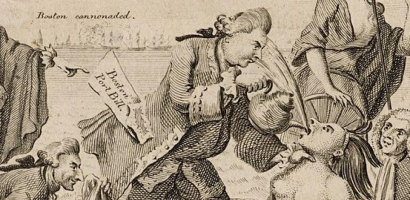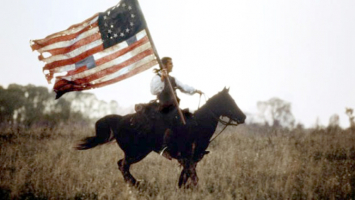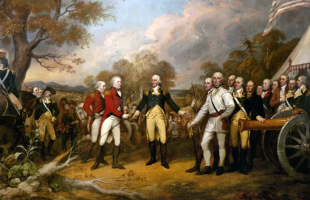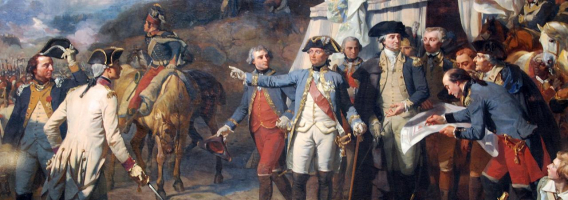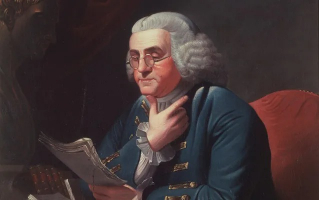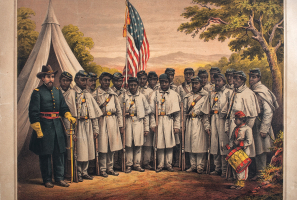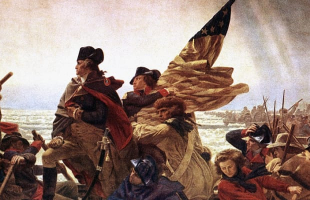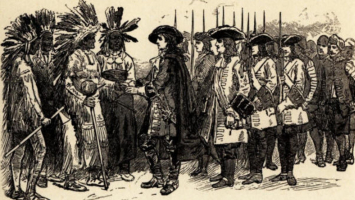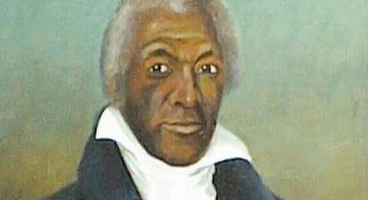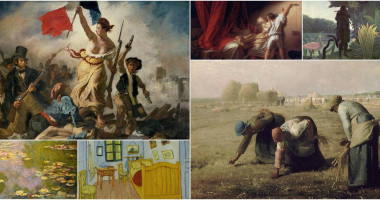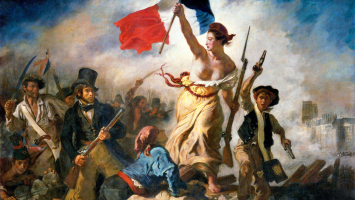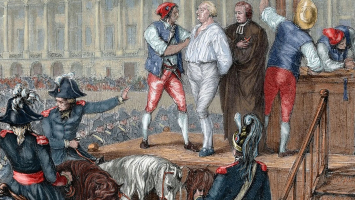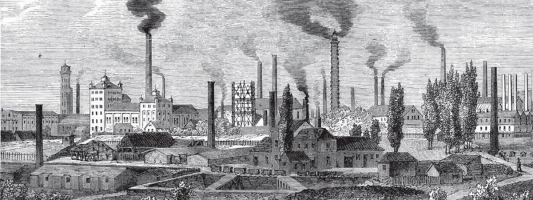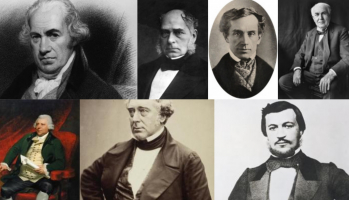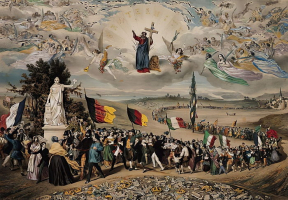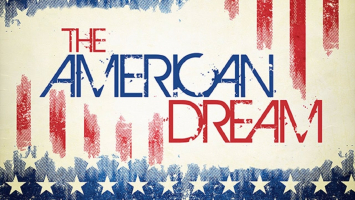Top 7 Enlightenment Ideas Influenced the American Revolution
Enlightening ideals of thought and religious freedom pervaded the American colonial religious scene. These values were instrumental in the American Revolution ... read more...and the founding of an age-old religion-free nation. The Age of Enlightenment ushered in a series of sweeping changes in both Europe and the British colonies in the Americas. Both the American and French Revolutions were heavily influenced by ideas from the Enlightenment. Explore the list of enlightenment ideas inspired by the American revolution to gain more knowledge and understanding about this period.
-
Natural rights are rights that are considered to be universal human rights that are granted by nature or God, not granted by society or government, and thus not to be revoked by society or government. Natural rights, as John Locke explains, greatly influenced this revolution. In America, the Declaration of Independence took a lot from John Locke, most importantly the famous phrase: life, freedom, and happiness. Natural rights are also guaranteed by the Bill of Rights. In France, natural rights were the basis of the Bill of Rights, a document on human rights during the French Revolution. John Locke is one of the most important and influential philosophers in world history. He spends a lot of time writing about philosophy and political thought. The founders of the American Revolution relied heavily on his ideals.
Regarding natural rights, some leaders of the American Revolution were influenced by Enlightenment ideas, which are freedom of speech, equality, freedom of the press, and religious tolerance. American colonists did not have these rights, so they rebelled against Britain to gain independence. In the Declaration of Independence, Thomas Jefferson wrote of Americans' natural rights to "life, liberty, and the pursuit of happiness". These ideas come from the Enlightenment, ideals that led to the American Revolution soon after. The American Revolution must be seen as a war against the colonialists for independence, not only a war of liberation from foreign domination but also a war for freedom. The American Revolution was a movement to fulfill the aspiration to acquire more wealth. Natural rights deserve to become one of the enlightenment ideas that influenced the American revolution.
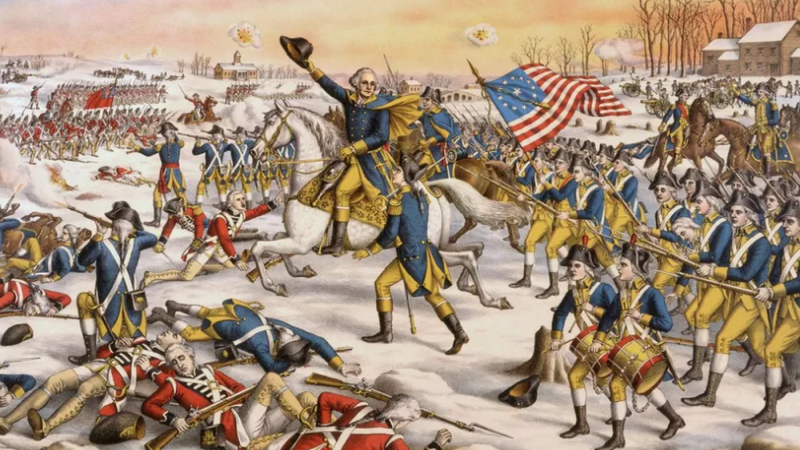
Source: thoughtco.com 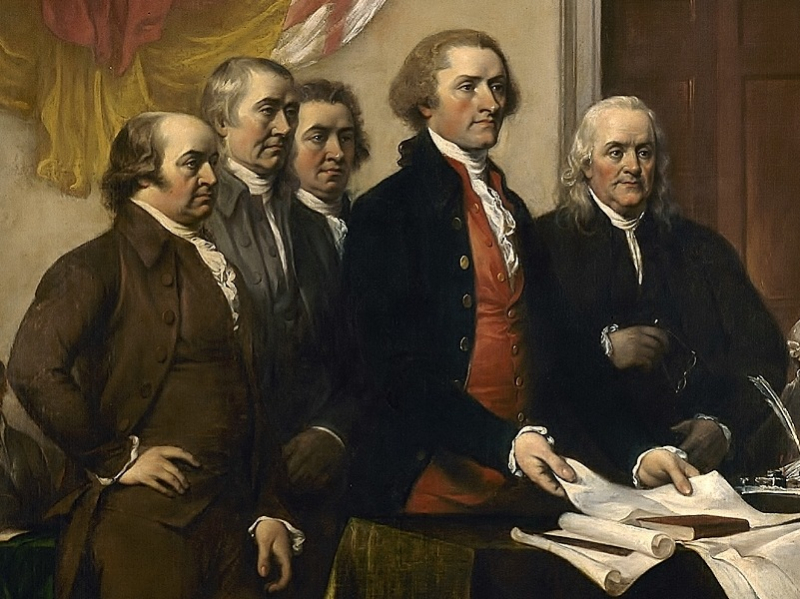
Source: startingpointsjournal.com -
Social contract theory entered both the American and French Revolutions. In both revolutions, social contract theory gave the people a reason to overthrow their monarchy. Because of this theory, the United States Constitution outlines elections for all offices as well as a way to remove a president from office if they are not doing their job. In France, the people believed that their monarchy did not honor the social contract and they overthrew it and replaced it with a republic. It was the idea that the government existed with the consent of the connection that led the revolutionaries to break free of Britain. From slavery to women's rights, from religious life to voting, American attitudes would be forever changed. Some changes would be felt immediately. Slavery would not be abolished for another hundred years, but the Revolution saw the dawn of an organized abolitionist movement. Therefore, the social contract becomes one of the enlightened ideas inspired by the American revolution.
John Locke's critical concept of the social contract, the natural and inalienable rights, and that men were born free and equal served the colonists as a basis to justify their revolutionary thoughts and independence. The social contract has helped politically or revolutions, especially in the American revolution. The social contract was divinely empowered against the idea that monarchs were divinely empowered to legislation. The changes brought by the revolution may bring a new set of social relationships, a new culture, a new political system, or a new technology. Therefore, revolution triggers overall changes in a social system, John Locke held that the obligation to obey civil government under the social contract was conditional upon the protection of the natural rights of each person, including the right to private property. Sovereigns who violated these terms could be justifiably overthrown.
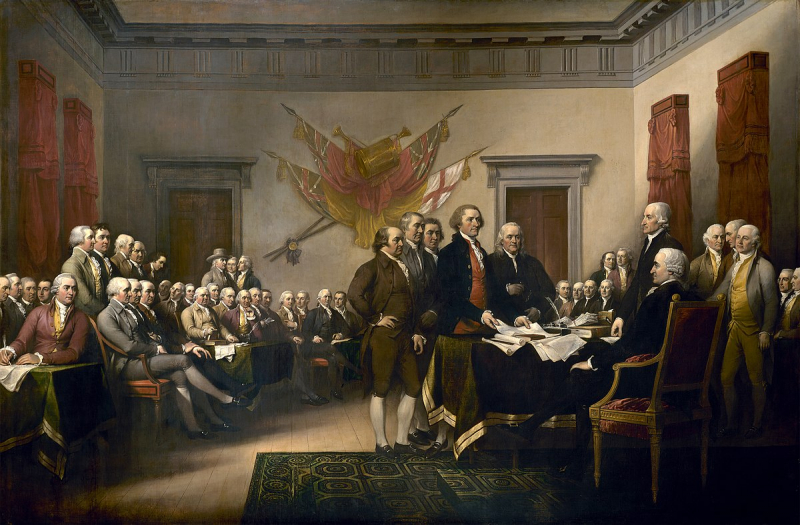
Source: ushistory.org 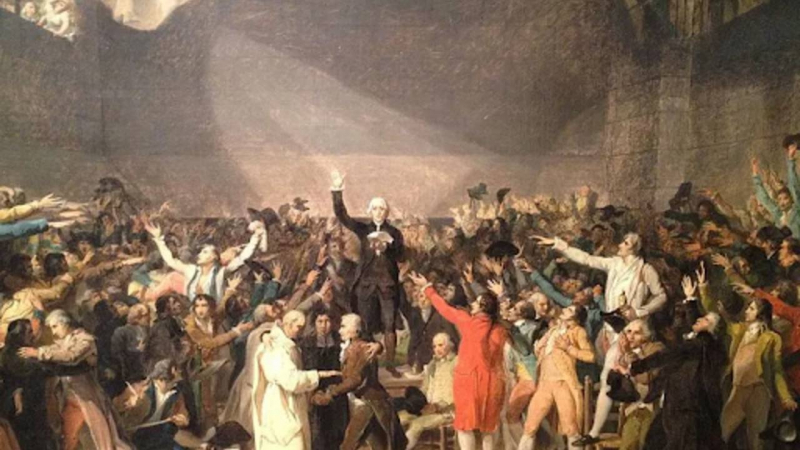
Source: criticaldissonance.com -
Montesquieu's theory of balance of power also had a place in these revolutions. When America was designing its new government, the founders designed three distinct branches of government. These three branches are legislative, executive, and judicial, each of which has the power to inspect the other two. This system is called the balance of power. In France, the monarchy and the three castes were stripped of their power because the First Estates and Second Estates mistreated the peasants of the Third Estates. It allowed the Americans to find allies in support of the revolution. Montesquieu believes that everything is made up of laws or rules that never change. He wrote the book The Spirit of the Law, which deals extensively with the importance of separation of powers in balancing government control.
Balance of power, in international relations, is the posture and policy of a nation or group of nations protecting against another nation or group of nations by matching its power against the power of the other side. The goal of balance of power is to prevent any power from becoming too strong, first by deterring aggression, but if that fails, by demonstrating that the aggressor does not significantly alter the balance of power. For realists, the balance of power is born in the crucible of international anarchy. The balance of power theory in international relations suggests that states may secure their survival by preventing any one state from gaining enough military power to dominate all others. Balance of power deserves to become an indispensable name in the list of enlightenment ideas that influenced the American revolution.
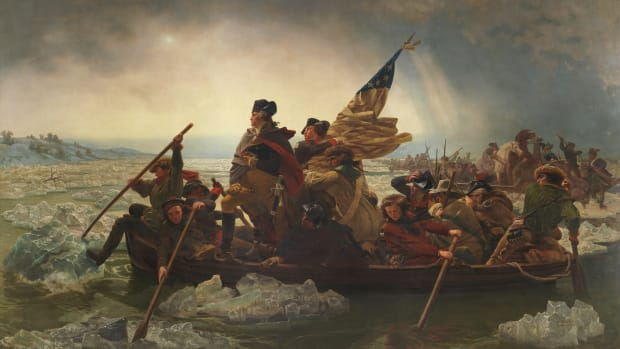
Source: khanacademy.org 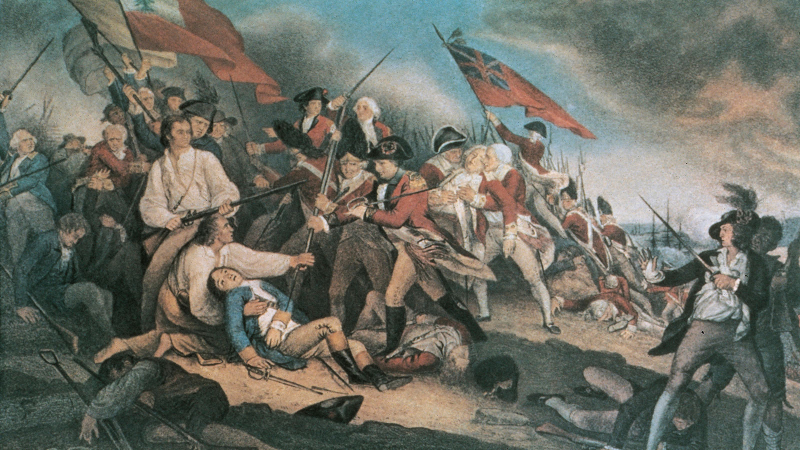
Source: history.howstuffworks.com -
Regarding the separate church and state, in the age of absolute monarchy, religion plays an important role. It is usually a control measure for people. The Founders of America and the American Revolution all knew this and took steps to make sure it didn't happen again. In the US, freedom of religion is guaranteed by the Bill of Rights. People have the right to religious freedom protected by the government. Neither a state nor the Federal Government can, openly or secretly, participate in the affairs of any religious organizations or groups and vice versa. In the words of Jefferson, the clause against the establishment of religion by law was intended to erect “a wall of separation between Church and State”. The Revolution also unleashed powerful political, social, and economic forces that would transform post-Revolution politics and society, including increased participation in politics and governance, the legal institutionalization of religious toleration, and the growth and diffusion of the population.
All of the Framers understood that “no establishment” meant no national church and no government involvement in religion. Thomas Jefferson and James Madison believed that without separating church and state, there could be no real religious freedom. Religious practice suffered in certain places because of the absence of ministers and the destruction of churches, but in other areas, religion flourished. The Revolution strengthens millennialist strains in American theology. Jefferson explained his understanding of the First Amendment's religion clauses as reflecting the view of the whole American people which declared that their legislative establishment should make no law respecting an of religion, or prohibiting the free exercise they, thus building a wall between church and State. It can be seen that the idea of a separate church and state is one of the enlightenment ideas that influenced the American revolution.
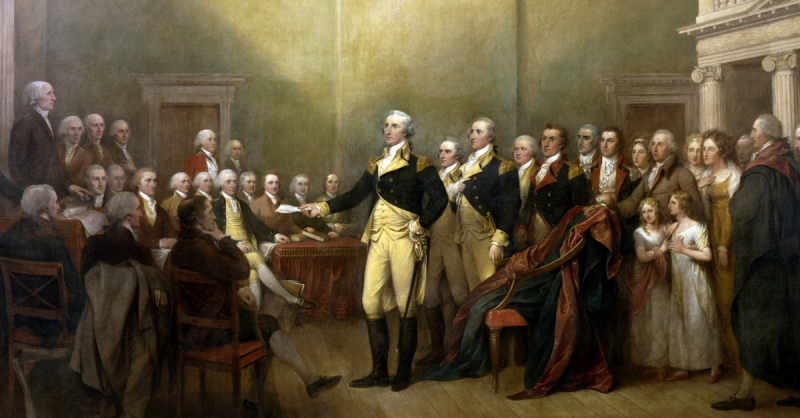
Source: allthingsliberty.com 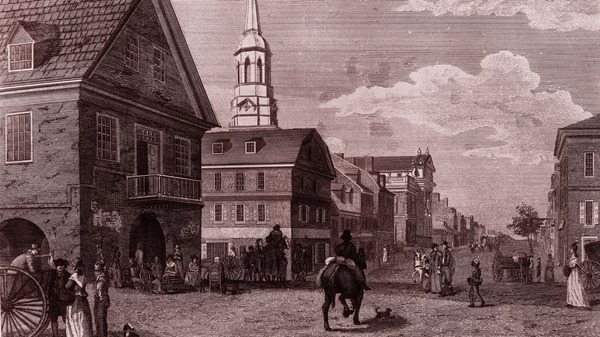
Source: allthingsliberty.com -
Thomas Hobbes is known for his political ideology of individualism. His vision of the world is amazingly original. His main concern in the world is how individuals can live together peacefully and without thinking of conflict. He rejected the free will of determinism, where freedom is seen as the ability to do what an individual desire. He believes that people should obey a group or a person in power rather than obey a state of nature. Individuals are in a state of nature, i.e. a state without civil authority. The way out of this desperate situation is to establish a social contract and to keep the state in peace and order. Hobbes also considers humans to be naturally vainglorious and so seek to dominate others and demand their respect. The natural condition of mankind, according to Hobbes, is a state of war in which life is solitary, poor, nasty, brutish, and short because individuals are in a war of all against all.
Individualism means man is prior to the state, it means self-interest is supreme. According to Hobbes, man is individualistic by nature and social only out of necessity. Hobbes is a scholar of possessive individualism. Shortly after America won the war with Great Britain, Thomas Jefferson wrote the Declaration of Independence. The Declaration of Independence declared that the United States had won the revolution from Great Britain and that they had gained their independence. Now they have the freedom to be their own nation. This just goes to show that these enlightenment ideals had a huge impact on America as well as the American revolution. Hobbes mainly influenced individuals to obey authority through the idea of individualism. Thereby, individualism becomes one of the enlightenment ideas that influenced the American revolution.
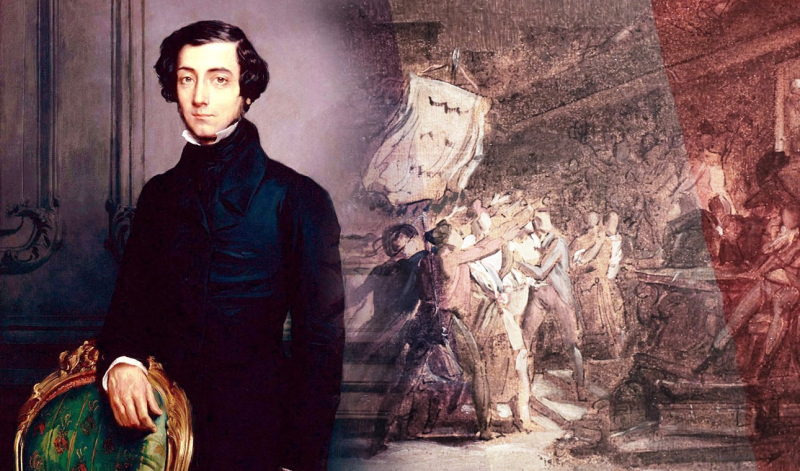
Source: blog.hillsdale.edu 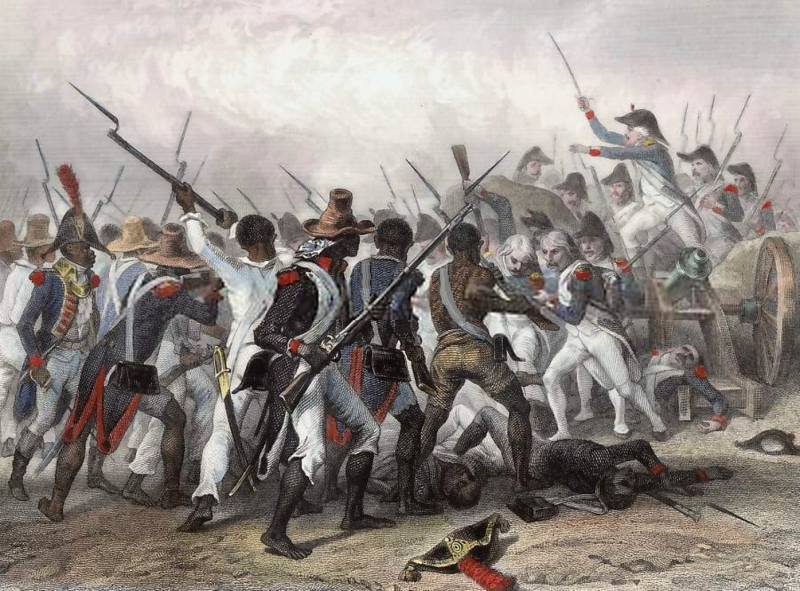
Source: isrf.org -
Deism is one of the enlightenment ideas that influenced the American revolution and had an impact in early America up through the American Revolution. European Enlightenment thinkers conceived traditions, customs, and prejudices as barriers to gaining true knowledge of the universal laws of nature. The solution is animism or understanding God's existence as separation from holy books, divine providence, revealed religion, prophecy, and miracles; instead religious beliefs are based on reason and observation of the natural world. Deism appreciates God as a rational deity. A rational God has given man rationality so that he can discover the moral instructions of the universe in the laws of nature. God created universal laws governing nature, and then man realized God's will through the right judgment and wise action. The Deismists are often Protestants who despise religious dogmatism and blindly follow tradition as modeled by the Catholic church.
Regarding the idea of deism, moderate and radical American enlightenment thinkers, such as James Madison, Benjamin Franklin, Alexander Hamilton, John Adams, and George Washington, were all divine. Some struggle with the tensions between Calvinist orthodox beliefs and divinity beliefs, while others subscribe to the populist version of theism put forward by Thomas Paine in The Age of reason. In what is known as the Jefferson Bible (originally the Life and Morals of Jesus of Nazareth), Jefferson records the life and times of Jesus Christ from a divine point of view, excluding any mention of miracles or divine intervention. God for gods like Jefferson never appeared widely in people's daily life other than to offer a moral or humanistic perspective and rational source to explore the content of God's law. Although orthodox Christians participate at every stage of the new republic, deism derived a majority of the Founders. The movement opposes barriers to moral improvement and to social justice. It stood for rational inquiry, skepticism about dogma and mystery, and for religious toleration. Religion played a major role in the American Revolution by offering a moral sanction for opposition to the British--an assurance to the average American that the revolution was justified in the sight of God.
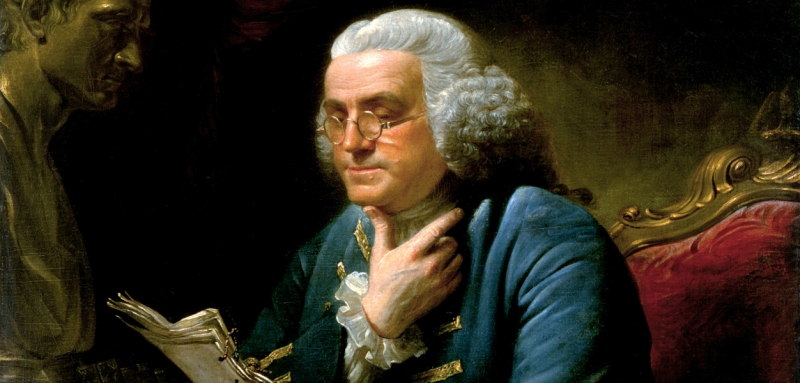
Source: yalebooks.yale.edu 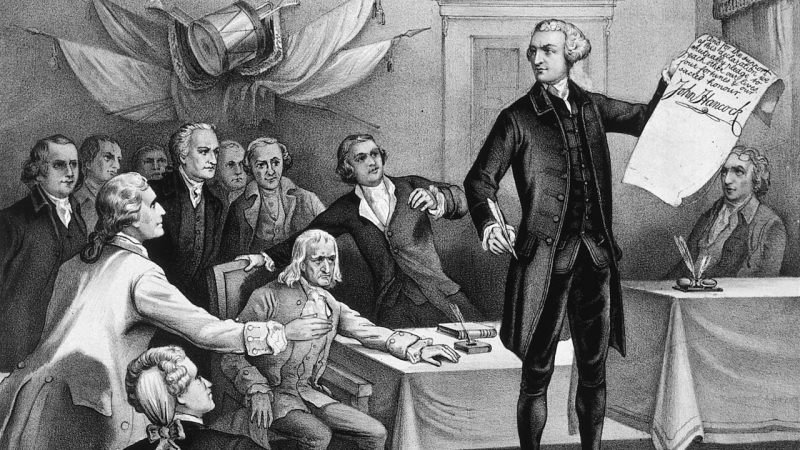
Source: christianheritagefellowship.com -
Another central idea in the ideas of enlightenment influenced the American revolution is liberalism, that is, the view that human beings have natural rights and that the power of government is not absolute, but based on the will and power of the ruled. Rather than being a radical or revolutionary doctrine, liberalism, rooted in commercial harmony and tolerant Protestantism, was adopted by merchants in Northern Europe. Liberals favor the interests of the middle class over the interests of the upper aristocracy, a tolerant pluralism view that does not discriminate between consumers or citizens based on their race or creed, a legal system devoted to the protection of private property, and a strong individualist character to the passive collectivism associated with stylistic arrangements. Liberals also favor rational debate and the free exchange of opinions over religious doctrine or government mandates. In this way, free thinking is anti-authoritarian. Although later liberalism was associated with grassroots democracy and a clear separation between the public and private sectors, early liberalism favored a parliamentary form of government to protect freedom of speech and movement, the right to petition the government, the separation of church and state, and the confluence of public and private interests in philanthropic and business endeavors.
The idea of liberalism claims that individuals have basic God-given rights, such as property, life, and liberty, and to pursue their conception of the good, starting with English philosopher John Locke, but is also reflected in Thomas Jefferson's manuscript of the Declaration of Independence. During the constitutional convention, James Madison responded to the anti-Federalists' request for a bill of rights as a condition of ratification by considering more than two hundred proposals and distilling them into a single list of committees. The first includes twelve proposed amendments to the Constitution, including the rights to freedom of speech, freedom of religion, the right to bear arms, and habeas corpus, among others. The fight for liberty led some Americans to manumit their slaves, and most of the new northern states soon passed gradual emancipation laws. Manumission also occurred in the Upper South, but in the Lower South, some masters revoked their offers of freedom for service, and other freedmen were forced back into bondage.
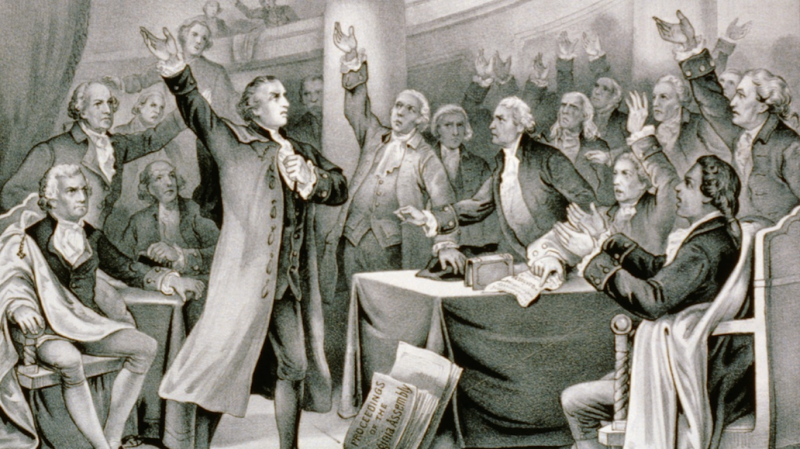
Source: americanrevolutioninstitute.org 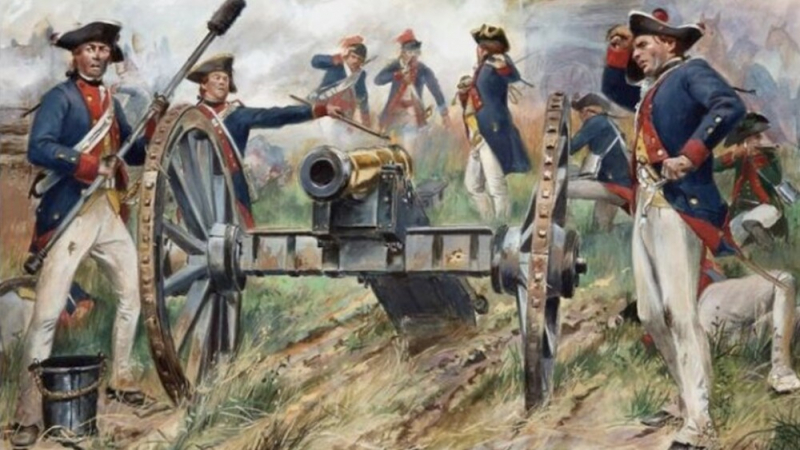
Source: newsela.com









